Victorian state budget: Daniel Andrews government spending splurge as debt heads to $167.5bn
The Andrews government has handed down a big-spending budget ahead of the November state election.
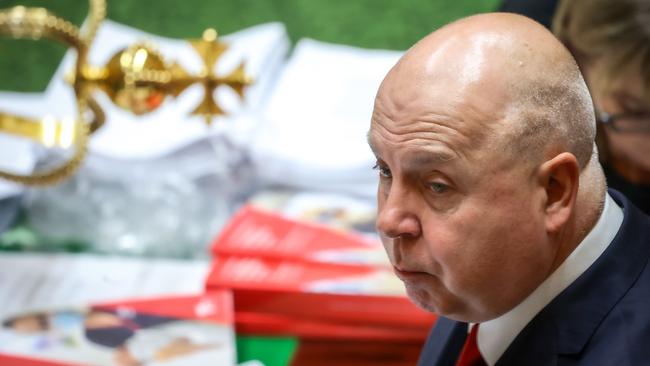
The Andrews government has handed down a big-spending budget ahead of the November state election, committing $22.2bn in new spending, including $12bn to fix Victoria’s health crisis, training and hiring thousands more nurses, paramedics, teachers and police, and splurging $2.6bn on the Commonwealth Games.
Delivering his eighth budget in the middle of a federal election campaign, Treasurer Tim Pallas sought to blame the Morrison government “short-changing” Victorians, and the pandemic, for a budget that will see net debt balloon to $167.5bn – or 26.5 per cent of gross state product – by July 2026.
Historically low unemployment of 4.0 per cent, underpinning a soaring tax take, is forecast to enable the government to deliver a $650m operating surplus in 2025-26, but not before deficits of $17.6bn in 2021-22, $7.9bn in 2022-23, $3.3bn in 2023-24 and $1.1bn in 2024-25.
Mr Pallas lashed the federal Coalition, devoting an entire chapter of his Budget Paper No.2 to “Victoria’s economic recovery despite insufficient economic support”, and arguing the Morrison government had “short-changed” Victorians “by billions of dollars”.
“The recent federal budget revealed Victoria’s share of new infrastructure spending would be mere scraps – less than 6 per cent of new funding, despite us having 26 per cent of the nation’s population,” he said, describing a GST carve-up that disadvantages Victoria and NSW as “the worst public policy disaster this nation’s had since we decided to build Canberra”.
“As the Premier has said, funding Victoria fairly is not foreign aid – this is simply what Victorians are entitled to, as Australians.”
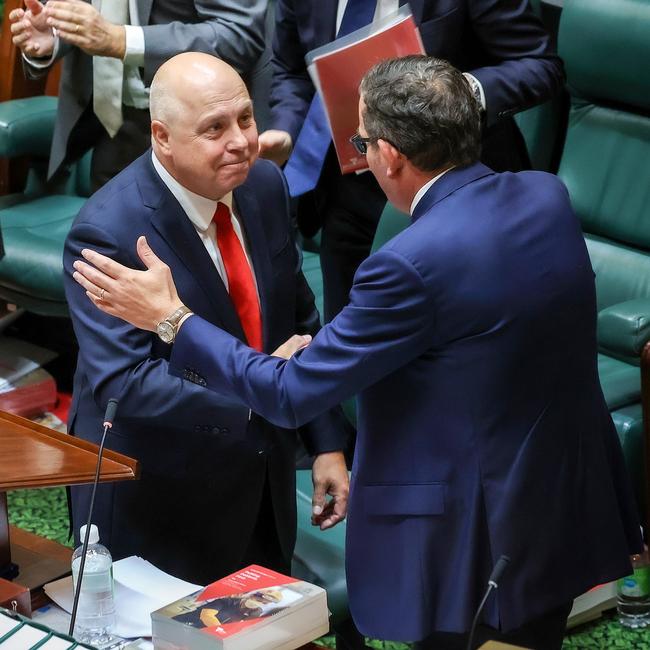
Ratings agencies S&P and Moody’s maintained Victoria’s credit rating at AA – the lowest of any state or territory in the nation – welcoming a strong economic recovery from the pandemic, but warning that sustained, debt-funded capital expenditure would limit the state’s capacity to pursue fiscal repair.
“A large infrastructure budget will ensure large after-capital account deficits drive debt higher,” S&P global ratings analyst Rebecca Hrvatin said.
Moody’s Investors Service vice-president John Manning said: “Despite the underlying strength of the Victorian and broader Australian economy, we expect Victoria’s debt burden will not stabilise before the end of fiscal 2027, further increasing negative pressure on the state’s rating.”
Key among the government’s new commitments is the hiring of 7000 new health workers, including 5000 nurses, as well as 1900 teachers, 500 police and 50 PSOs.
Following the deaths of more than a dozen Victorians since last year as they waited for calls to triple-0 to be answered, the government has announced $124m to put more paramedics on the road, and $333m to fund 400 new staff to boost call-taking and dispatch capacity, including for ambulances.
There will be $900m for a new hospital in Melton in Melbourne’s rapidly growing outer northwest, and $500m for a new women’s and children’s hospital in Geelong, as well as $236m to expand emergency departments at the Werribee Mercy and Casey hospitals in the outer southwest and outer southeastern suburbs respectively.
Another unexpected commitment was $12.8m to open a new trade and investment office in Paris.
Having on Monday announced $250 cash payments for Victorian households that use a government website to find better gas and electricity deals, the government has included $2.2bn of “funding not allocated to specific purposes” in its budget, which ahead of November can be expected to be used to fund election promises.
The $2.6bn set aside for the Commonwealth Games is expected to have spin-offs for regional Victoria in the form of local job creation and lasting housing and infrastructure legacies, but the budget contains no detail of how the money will be spent.
Integral to bankrolling the new commitments is a rapidly growing tax take, with total revenue from taxation expected to increase by 1.4 per cent, or $6.4bn in 2021-22, before surging to average growth of 4.7 per cent over the forward estimates. This includes increases of $603m in land tax (up 14.2 per cent), $1.5bn in stamp duty on land transfers (up 22.6 per cent) and $1.1bn in payroll taxes (up 17 per cent) in the year ahead – the extra property tax revenue coming despite a prediction that house prices will fall by 4 per cent.
Mr Pallas also announced a “Victorian Future Fund”, expected to be worth $10bn over the “medium term”, which he said would initially be established “using proceeds from the VicRoads modernisation joint venture that is currently progressing”, with further contributions expected to come from land sales “and a proportion of future budget surpluses once net debt stabilises”.
Asked exactly how much money the government expected to raise from partially privatising VicRoads’ car licensing and registration responsibilities, the Treasurer conceded he was “being particularly cryptic” about the arrangement “for very good reason”.
“We’re in the process of a tender process at the moment,” Mr Pallas said. “I will be able to tell everybody exactly how much we got for that once that process is completed, I think it will probably be July this year.”
Despite all the extra nurses, teachers and police, and public sector wages being forecast to have blown out by 10.6 per cent this financial year to $37.3bn, the government maintains the bill will grow by only 7.4 per cent over the forward estimates, in part due to a contraction in temporary pandemic-related roles. With an average of $21.3bn to be spent each year across the forward estimates on infrastructure, the budget also confirmed $6bn in major project cost blowouts.
Mr Pallas attributed most of this sum to the West Gate Tunnel project, which the government recently revealed would cost an extra $4.1bn and open three years late, in 2025.
Among the responsibilities of the 500 new cops will be helping to raise millions more in speed camera and on-the-spot fine revenue, which is expected to jump 16.4 per cent next financial year alone, from $615m in 2021-22 to $716m in 2022-23, and $829m over the forward estimates.

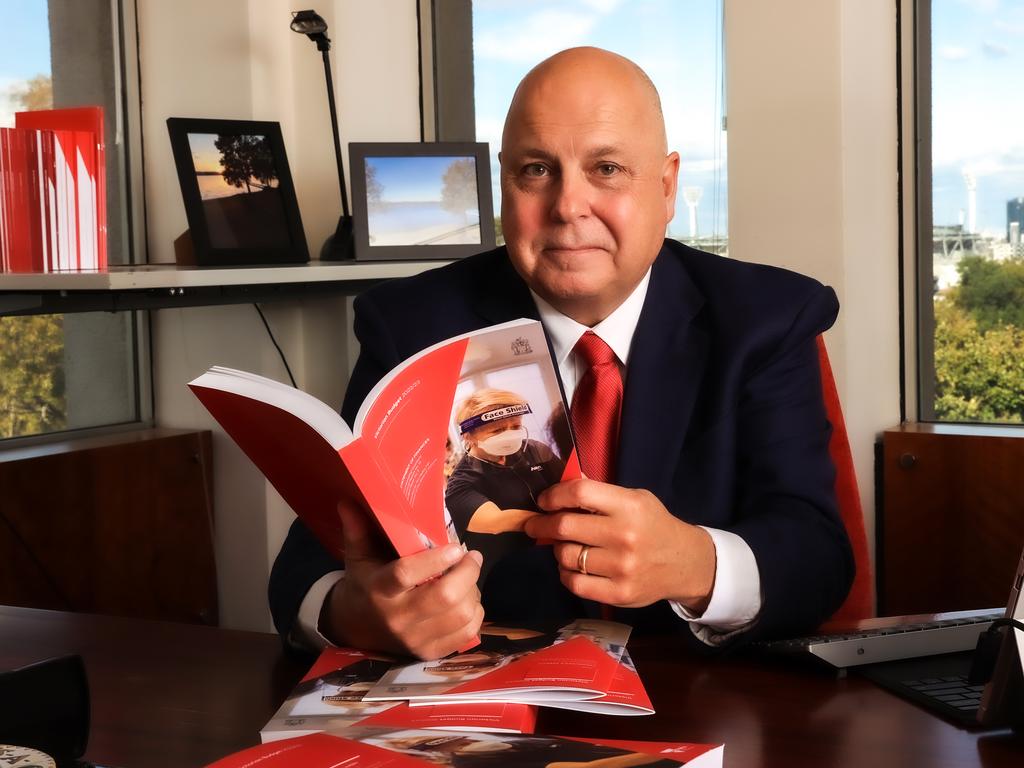
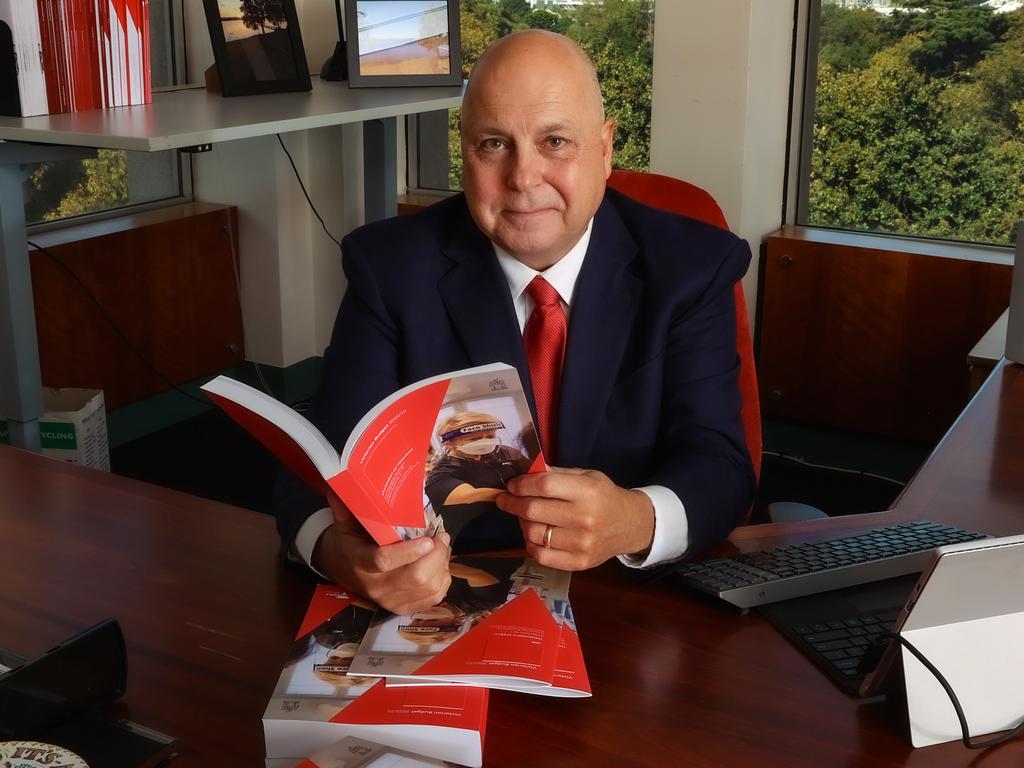

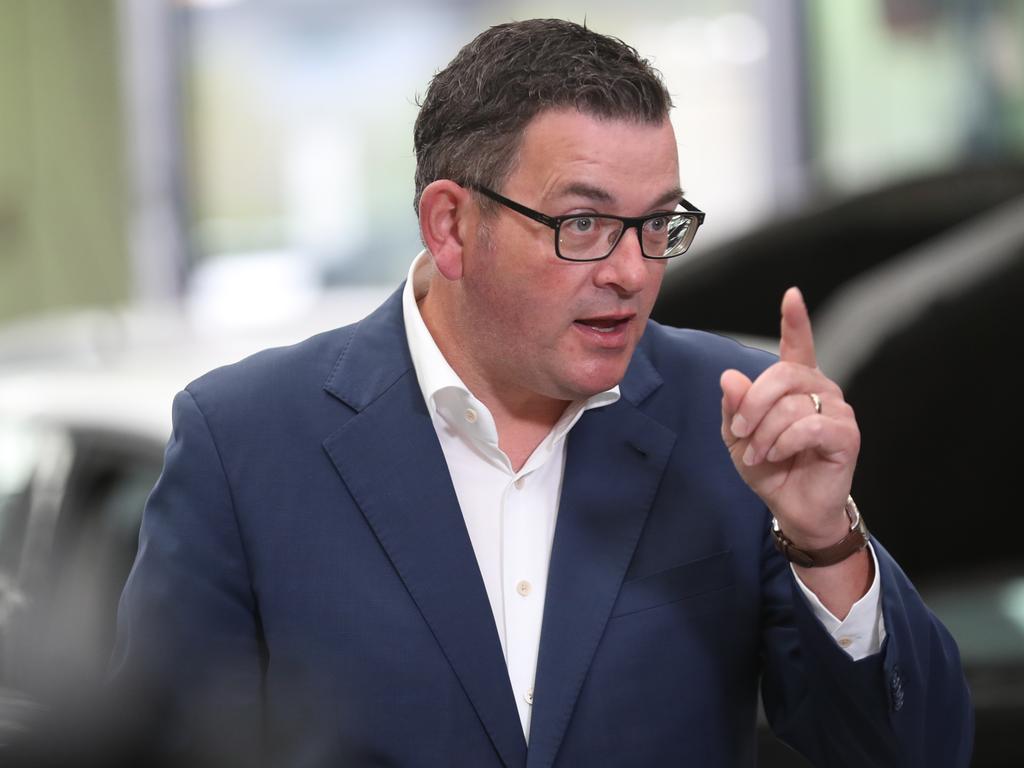


To join the conversation, please log in. Don't have an account? Register
Join the conversation, you are commenting as Logout